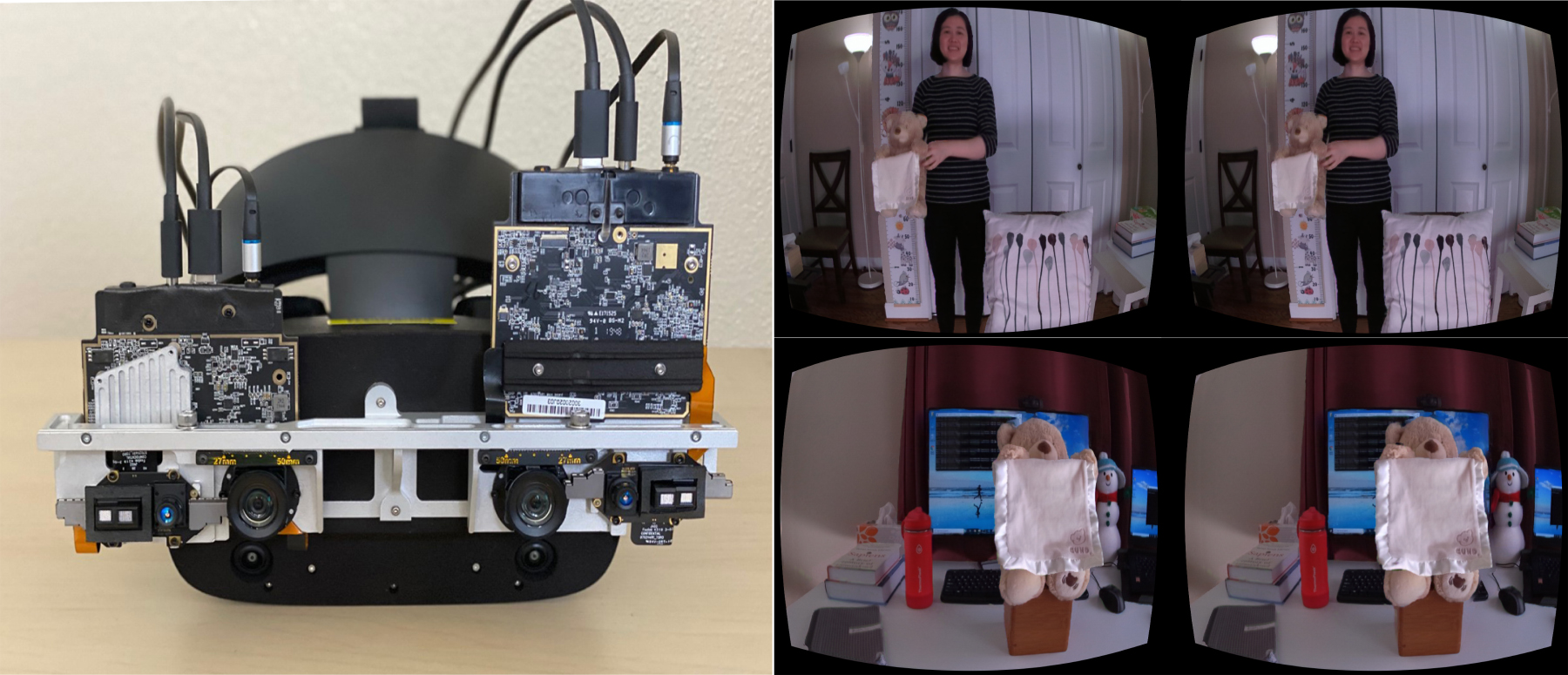This repository provides source code, trained neural network model and dataset for our NeuralPassthrough work that is published at SIGGRAPH 2022. Note that the provided code is its Python implementation version, prior to customized real-time inference optimization in C++.
If you use this code, model or dataset, please cite the publication:
Lei Xiao, Salah Nouri, Joel Hegland, Alberto Garcia Garcia, and Douglas Lanman. "NeuralPassthrough Learned Real-Time View Synthesis for VR". ACM SIGGRAPH 2022.
The code has been tested with Anaconda 3 on Windows 10.
-
Download third-party code.
Please download RAFT-Stereo, and place the unzipped files under/code/third_party/RAFT_Stereo/. For example, the/coresubfolder in the original RAFT-Stereo repo should be/code/third_party/RAFT_Stereo/core/. Please follow the instructions in the original RAFT-Stereo repo to set the code up, although you don't need to download any training or test dataset.
A few changes about the relative paths in the RAFT-Stereo code are required for NeuralPassthrough to call their functions correctly. Specifically, in the file/code/third_party/RAFT_Stereo/core/raft_stereo.pyand/code/third_party/RAFT_Stereo/core/corr.py, please removecorefrom all the lines likefrom core.xxx import xxx. For example, changefrom core.utils.utils import bilinear_samplertofrom .utils.utils import bilinear_sampler.
Please download their pretrained models and place them under/third_party/RAFT_Stereo/models/. For example, the model used in our NeuralPassthrough implementation should be/third_party/RAFT_Stereo/models/raftstereo-realtime.pth.
Our method also use the softmax splatting code that can be found here. The code was minorly edited and included in our repo (i.e./code/softsplat.py) for convenience. You don't need to download it from its original repo. -
Download dataset.
The dataset is stored as a Git LFS file at/data/test.zip. Please make sure it's downloaded correctly (1.85GB). Unzip it and place its subfolders under/data/test/. For example, the/realsubfolder should be/data/test/real/. -
Create Conda environment.
In your Conda terminal, run the following commands to set up the Conda environment.
conda env create -f environment.yaml
conda activate neuralpassthrough -
Run.
You should be able to run the code now. In your Conda terminal, go to folder/code. The entry files for testing with real captured examples and rendered synthetic exapmles aretest_prototype.pyandtest_synthetic.pyrespectively. For example, you can runpython test_prototype.py.
You can change the specific test scenes in these files (e.g. look for "select scene" in the code). The output images will be saved to a new folder automatically created under the root directory.
NeuralPassthrough is MIT licensed, as found in the LICENSE file.
